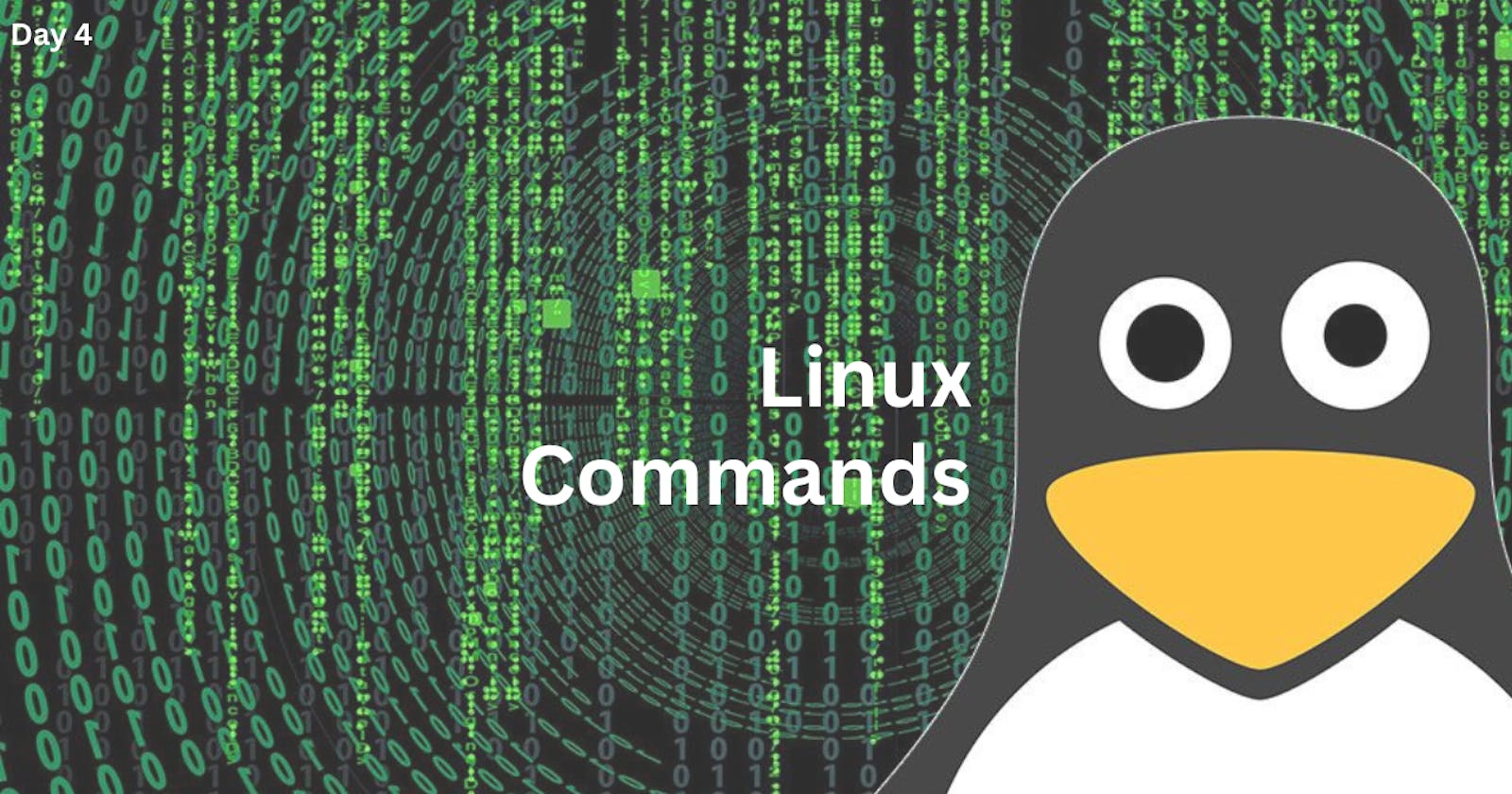| alias | Converts complex commands into simpler ones. |
| bzip2 / bunzip2 | Compresses a file / Decompress a bzip2 file. |
| bzcat / bzmore | Displays files compressed with bzip2. |
| cal | Displays calendar. |
| cat | It is a multi-function command. |
| cd | Changes the current working directory. |
| chage | Sets an expiration date for a user account. |
| chgrp | Changes group. |
| chmod | Changes permission for a file or directory. |
| chown | Changes the owner of a file or directory. |
| chsh | Changes the shell. |
| clear | Clears the terminal. |
| comm | Compares two streams or files. |
| cp | Copies file content from one file to another file. |
| cut | Used to display the desired column from a file. |
| date | Displays the current date. |
| df | Checks the disk space in the system. |
| du | (disk usage) displays the space used by specific directories and files. It drills down into directories, showing the actual space consumption of each, making it useful for identifying which files or folders are consuming the most space. |
| echo | Prints the typed word on the terminal. |
| exit | Exits from the current user group to the last group. |
| export | Exports shell variables to other shells. |
| file | Displays the type of file. |
| find | Finds files for a particular search. |
| free | Displays the total amount of free space available along with the amount of memory used and swap memory in the system, and also the buffers used by the kernel. |
| gpasswd | Transfers group membership to another user. |
| grep | Filters lines of text containing a certain string. |
| groupadd | Creates a group. |
| groupdel | Permanently removes a group. |
| groupmod | Changes group name. |
| groups | Displays the group name to which the current user belongs to. |
| gzip / gunzip | Compresses a file / Decompress a gzip file. |
| head | Displays the first ten lines of a file. |
| history | Displays older commands from the shell command history. |
| HISTSIZE | Determines the number of commands to be stored in the current environment. |
| HISTFILE | Displays the file that contains the history. |
| HISTFILESIZE | Sets the number of commands kept in the history file. |
| id | Tells about the user's id in the system. |
| less | Displays file content according to the width of the terminal. |
| locate | Searches a file in the database. |
| ls | Lists all the files of a directory. |
| man | Displays the manual page for the specified command. |
| mkdir | Creates directory. |
| more | Displays one output screen at a time. |
| mv | Renames directories or files. |
| od | Displays a file content in octal format. |
| passwd | Set a password for a user group. |
| pwd | Display the current working directory location. |
| PS1 | Change the prompt name in the terminal. |
| rename | Renames more than one file at once. |
| rm | Removes a file. |
| rmdir | Removes a directory. |
| set -o noclobber | Prevents file from getting overwritten. |
| set +o noclobber | Allows overwriting in the existing file. |
| set -u | Displays undefined variables as an error. |
| set +u | Displays nothing for an undefined variable. |
| set -x | Displays shell expansion. |
| set +x | Disables shell expansion. |
| sed | It is used to perform basic text transformations on a file or input stream. It can substitute, delete, or insert text based on patterns. |
| sleep | Waits for the specified number of seconds. |
| sort | sorts the content in alphabetical order. |
| su | It allows a user to run a shell as another user. |
| sudo | It allows a user to start a program with the credentials of another user. |
| scp | CP is an acronym for Secure Copy Protocol. It is a command line utility that allows the user to securely copy files and directories between two locations usually between unix or linux systems. |
| tac | Displays file content in the opposite order. |
| tail | Displays the last ten lines of a file. |
| tar | Compresses a directory. |
| tee | Puts stdin on stdout and then into a file. |
| time | Displays time taken to execute a command. |
| touch | It creates an empty file. |
| tr | Translates characters. |
| type | Displays information about command type. |
| uniq | Sorts and display multi times repeating lines only once. |
| unset | Removes a variable from a shell. |
| useradd | Adds users. |
| userdel | Deletes users. |
| usermod | Modifies the properties of a user. |
| vi | Opens vi editor to write a program. |
| w | Displays who is logged on and what are they doing. |
| wc | Counts words, lines, and characters. |
| who | Tells who is logged on the system. |
| whoami | Tells the name of the user. |
| who am i | Displays the line pointing to your current session. |
| zcat / zmore | Views the files compressed with gzip. |
